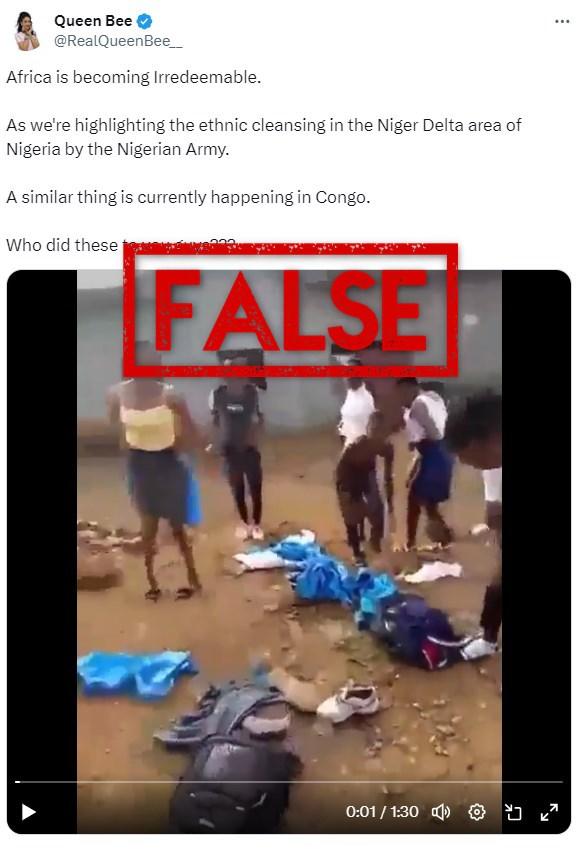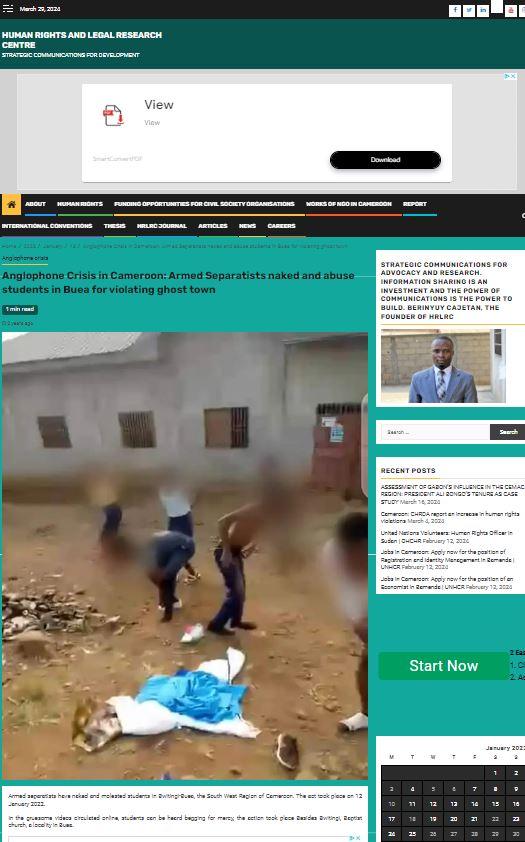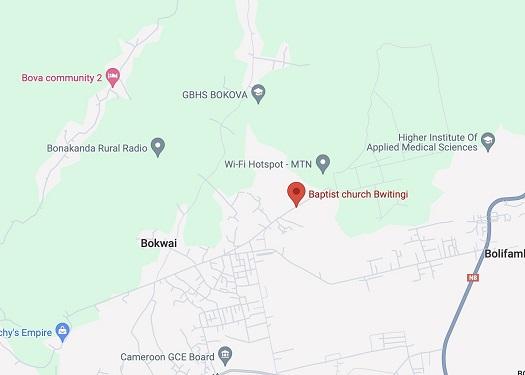
Post falsely claims video shows attack by DRC troops
- This article is more than one year old.
- Published on March 29, 2024 at 16:19
- Updated on April 8, 2024 at 11:15
- 3 min read
- By Tonye BAKARE, AFP Nigeria
“Africa is becoming Irredeemable. As we're highlighting the ethnic cleansing in the Niger Delta area of Nigeria by the Nigerian Army. A similar thing is currently happening in Congo (sic),” reads a post shared on X on March 19, 2024.

Shared more than 700 times, the post features a clip of more than 90 seconds showing armed men dressed in military fatigues forcing a group of school children to strip.
Another post on X claimed that the video showed M23 rebels engaging in “open rape”.
Fighting between M23 rebels and government troops in eastern DRC has resurged since the end of 2021 after eight years of dormancy (archived here).
By the middle of 2022, the rebel group had established its administration in parts of the North Kivu region (archived here).
The UN estimated that the conflict had displaced about seven million people, including 2.5 million in North Kivu alone, by the end of 2023 (archived here).
However, the claim that the video shows victims of ethnic cleansing in DRC is false.
Separatist violence
To verify the claim, AFP Fact Check took a screenshot of the clip in the posts and carried out a reverse image search.
We found that the video was published on Facebook more than two years ago, on January 13, 2022 (archived here).
The Facebook page that published the video belongs to a Cameroon-based news outlet called Mimi Mefo Info.
The caption explained that it showed “ambazonia terrorists” attacking students.
Ambazonia is the unrecognised state in Cameroon's mainly anglophone northwest and southwest regions. Separatists campaigning for the independence of Ambazonia have often resorted to violence, including hostage-taking and killing (archived here).
The International Crisis Group estimated that clashes between the militants and government forces since late 2016 have claimed more than 6,000 lives and displaced more than one million people (archived here).
A Human Rights Watch report from 2022 said the victims were students of Bokova high school and that one of the students was shot (archived here).
The rights group said separatists had targeted schools, torching at least two facilities in the process, and attacked a university.
About seven seconds into the clip posted on Facebook in January 2022, a shot rings out close to a boy dressed in a white shirt and blue trousers. Another follows shortly.
A media report at the time said the students were attacked close to Bwitingi Baptist church in Buea for defying the separatists’ call to boycott the 2022 African Cup of Nations (AFCON) hosted by Cameroon (archived here).
By matching a background structure, AFP Fact Check confirmed a screengrab used in the article was taken from the video of the attack on the students.

Bokova is a village in Beau, the capital of Cameroon’s southwestern region (archived here).

“The violent and the degrading acts yesterday at GHS #Bokova in #Buea SW #Cameroon are contrary to this human right,” the British High Commission in Yaounde said on January 14, 2022, on X (then Twitter) in an apparent reaction to the attack on the students (archived here). “We are appalled.”
Every child has the right to #education . The violent and the degrading acts yesterday at GHS #Bokova in #Buea SW #Cameroon are contrary to this human right. We are appalled.
— UK in Cameroon (@UKinCameroon) January 14, 2022
We call on all sides to work to support access to #schools. @UnescoYaounde@FCDOHumanRights
April 8, 2024 The story has been amended to fix a typo in the header image.
Copyright © AFP 2017-2026. Any commercial use of this content requires a subscription. Click here to find out more.
Is there content that you would like AFP to fact-check? Get in touch.
Contact us
